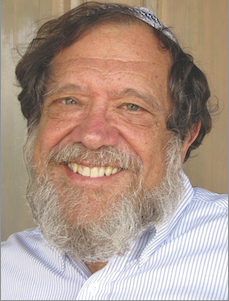Yet there were also many Jews who listened carefully to Mandela and agreed with his critique of the cruel Occupation, blockade, and exile that Israel had inflicted on several million Palestinians. Many of these Jewish progressives dared to wish (and sometimes even to suggest to their Palestinian allies) that they too should be trying to follow the path of Mandela and provide the Israelis with a concrete and compassionate vision of what a two-state solution could look like.
Many of us reject the notion that Israel itself is an apartheid state because Palestinians living inside the pre-1967 borders of Israel have equal voting rights, representation in the Knesset, and full access to the Israeli universities, beaches, and public accommodations. This is not to downplay the severity of the racism Palestinians face there -- Israeli society has grown ever more racist not only against Arabs but also against Jews who look like Arabs, Jews of color, and the thousands of non-Jews invited in to replace Palestinians in the worst paying jobs in Israeli society.
The experience of Palestinians within the pre-1967 borders of Israel is in some ways comparable to the experience of people of color in the United States, where there is legal equality on paper but considerable racism enacted on every level of the society. Just as people of color are harassed and brutalized by police in the United States and face structural racism of all sorts, so Palestinians in Israel face racist practices and rhetoric, not least from right wing religious fundamentalists and atheistic nationalists.
But if you consider Israel-as-society rather than Israel-as-state, the picture changes. For all the Palestinians living in the West Bank under Occupation and for all the Palestinians living in Gaza, barely surviving the ruthless blockade Israel has imposed on them, the legal restrictions and conditions of daily life are comparable in their harshness to apartheid and de facto as oppressive as apartheid, albeit not explicitly based on the racial category of "Palestinian" but rather on fear of the national struggle Palestinians have been fighting to retain some part of the land and the rights that they held before the Jews started returning to what our sacred texts had taught us was our ancient homeland and thus causing hundreds of thousands of Palestinians to flee.
Nelson Mandela addresses the Special Committee Against Apartheid in the General Assembly Hall in June 1990. Credit: Creative Commons/UN Photo/P Sudhakaran.
Mandela was falsely accused of having labeled Israel an apartheid state -- he never did -- and he frequently praised other aspects of Israeli society. At times he even seemed to embrace Jewish nationalism as a model for the kind of nationalism he sough to develop in South Africa. But he clearly and powerfully spoke out against the oppression of Palestinians, and rightly so. I was very moved when former Archbishop Desmond Tutu suggested that my latest book Embracing Israel/Palestine"could make a major contribution to reconciliation" in Israel/Palestine not only because of Tutu's role as one of Mandela's closest supporters but also because Tutu had once explicitly pointed to the Jewish value of reconciliation as opposed to conquest and "power over" in his calls for reconciliation in South Africa.
In a certain sense, by critiquing the Occupation, Mandela was being a better Jew than many of the right-wing Zionists who have controlled the government in Israel. And indeed there are many Jews, myself among them, who wish that the Jewish people today could either find a leader with the values of Mandela or produce a generation of Jews so infused with the spirit of Mandela that they could change our people from its current fearful place to a place in which we (and Israel) became famous not for our political, economic, or military power but for being a deeply generous and openhearted people toward those who acted as our enemies.
There are really two Jewish peoples today. One is still connected to the most generous and love-oriented elements of our tradition and is seeking to renew them. The other is grounded in what I call "Settler Judaism" -- a Judaism that has its roots in our tradition as well, and that sees the "other" as an enemy. Adherents to this worldview argue that God's empowerment of the Jewish people and the world's flagrant disregard for Jews when we were being murdered by the millions in the twentieth century entitle us to be callous toward the suffering that Israel imposes on the Palestinian people.
Jews are not alone in facing this contradiction. The truth is that in all of us there is one voice inclining us toward trust, love, and a generosity of spirit and action, and another voice of fear that inclines us toward domination in the name of self-protection. Mandela's successes in South Africa have strengthened for much of the world and for a section of the Jewish people the voice of hope, love, and generosity, but not enough to overcome the deep voices of cynicism and despair that lead so many Jews and non-Jews alike to revert to the knee-jerk response of violence whenever a situation triggers in us our deep feelings of fear.
Reprinted from tikkun.org
(Note: You can view every article as one long page if you sign up as an Advocate Member, or higher).






